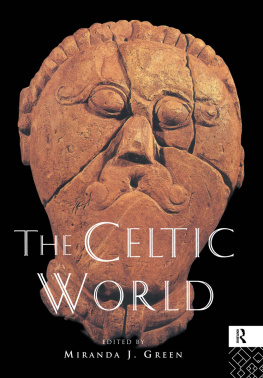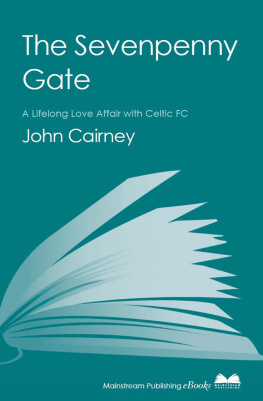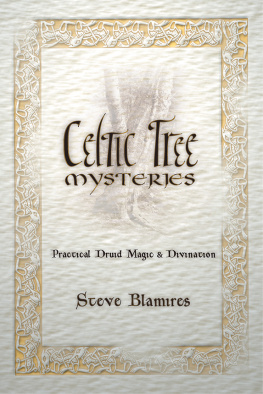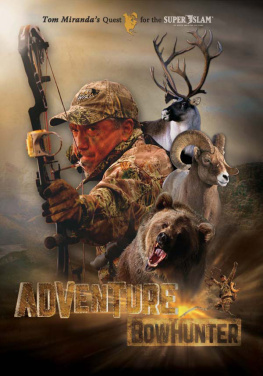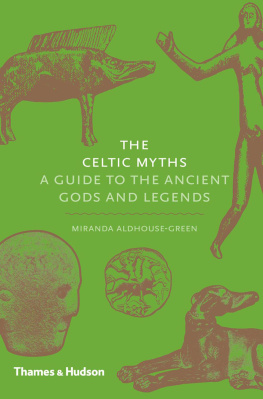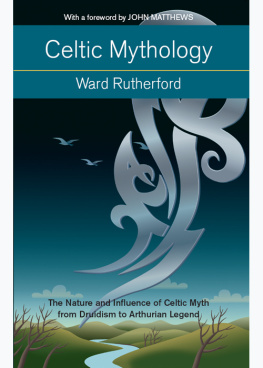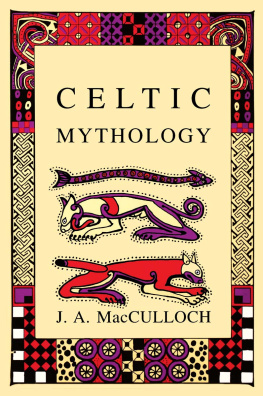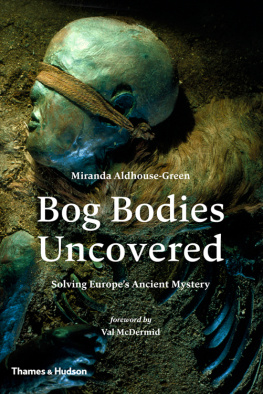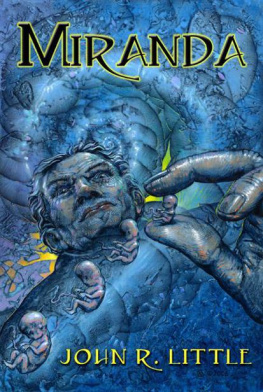Miranda J. Green - The Celtic World
Here you can read online Miranda J. Green - The Celtic World full text of the book (entire story) in english for free. Download pdf and epub, get meaning, cover and reviews about this ebook. publisher: Routledge, genre: Home and family. Description of the work, (preface) as well as reviews are available. Best literature library LitArk.com created for fans of good reading and offers a wide selection of genres:
Romance novel
Science fiction
Adventure
Detective
Science
History
Home and family
Prose
Art
Politics
Computer
Non-fiction
Religion
Business
Children
Humor
Choose a favorite category and find really read worthwhile books. Enjoy immersion in the world of imagination, feel the emotions of the characters or learn something new for yourself, make an fascinating discovery.
- Book:The Celtic World
- Author:
- Publisher:Routledge
- Genre:
- Rating:3 / 5
- Favourites:Add to favourites
- Your mark:
- 60
- 1
- 2
- 3
- 4
- 5
The Celtic World: summary, description and annotation
We offer to read an annotation, description, summary or preface (depends on what the author of the book "The Celtic World" wrote himself). If you haven't found the necessary information about the book — write in the comments, we will try to find it.
The Celtic World — read online for free the complete book (whole text) full work
Below is the text of the book, divided by pages. System saving the place of the last page read, allows you to conveniently read the book "The Celtic World" online for free, without having to search again every time where you left off. Put a bookmark, and you can go to the page where you finished reading at any time.
Font size:
Interval:
Bookmark:

THE CELTIC WORLD

Edited by
Miranda J. Green

First published 1995
by Routledge
2 Park Square, Milton Park, Abingdon, Oxon, OX14 4RN
First published in paperback in 1996
Simultaneously published in the USA and Canada
by Routledge
270 Madison Ave, New York NY 10016
Reprinted 1996
Transferred to Digital Printing 2005
Routledge is an International Company
1995, 1996 Selection and editorial matter, Miranda J. Green
1995, 1996 Individual chapters, the contributors
Typeset in Stempel Garamond by
Florencetype Ltd, Stoodleigh, Devon
All rights reserved. No part of this book may be reprinted or reproduced or utilized in any form or by any electronic, mechanical, or other means, now known or hereafter invented, including photocopying and recording, or in any information storage or retrieval system, without permission in writing from the publishers.
British Library Cataloguing in Publication Data
A catalogue record for this book is available from the British Library
Library of Congress Cataloguing in Publication Data
A catalogue record for this book is available from the Library of Congress
ISBN 0-415-05764-7 (hbk)
ISBN 0-415-14627-5 (pbk)
ISBN 978-1-135-63243-4 (epub)
CONTENTS

PART IX: THE CELTS IN EUROPE
ILLUSTRATIONS

Percentages of ox, sheep/goat and pig bones from Roman sites in Britain |
Incision to facilitate handling of vessels |
Iron age features, Collfryn |
TABLES
CONTRIBUTORS

Martin Bell is a Senior Lecturer in Archaeology at the University of Wales, Lampeter. He is currently directing the Experimental Earthwork Project, and a programme of intertidal wetland archaeology in the Severn Estuary. He is author (with Dr M.J.C. Walker) of Late Quaternary Environmental Change (1992) and editor (with Dr J. Boardman) of Past and Present Soil Erosion (1992).
Daphne Nash Briggs was an Assistant Keeper in the Heberden Coin Room, Ashmolean Museum, Oxford, and part-time University Lecturer in Roman, then Greek numismatics at Oxford University, from 1976[-]85. Her publications include (as Daphne Nash) Coinage in the Celtic World (1987).
Olivier Bchsenschtz is Director of the Centre National de la Recherche Scientifique, Archologies dOrient et dOccident, in Paris, and is Associate Professor at the University of Paris. He has published Structures dhabitats et fortifications de lge du Fer en France Septentrionale (1984); Architectures des ges des metaux (1988); he is co-author (with Franoise Audouze) of Towns, villages and countryside of Celtic Europe (1989), and has published reports on his excavations at Levroux.
Barry C. Burnham is a Senior Lecturer in Archaeology at the University of Wales, Lampeter. His publications include a joint-authored volume on The Small Towns of Roman Britain (1990), and an edited work on Conquest, Co-existence and Change: Recent Work in Roman Wales (1991).
Sara Champion is Visiting Senior Lecturer in the Department of Archaeology at the University of Southampton. Her publications include A Dictionary of Terms and Techniques in Archaeology (1980) and numerous articles on coral, enamel, craft production and its relationship to social organization in iron age Europe.
Timothy Champion is Reader in Archaeology and Head of the Department of Archaeology at the University of Southampton. His publications include Prehistoric Europe (1984) and Centre and Periphery (1989).
Thomas Charles-Edwards is Fellow and Tutor in Modern History at Corpus Christi College, Oxford. He is the author of Early Irish and Welsh Kinship (Oxford, 1993)
John Collis is Professor in the Department of Archaeology and Prehistory, University of Sheffield. He has published extensively on the Iron Age in Europe, and his books include The European Iron Age (1984), and Oppida, earliest towns north of the Alps (1984). His main field project is investigating the changes in settlement pattern and social and economic organization in central France.
Jeffrey L. Davies is Senior Lecturer in Archaeology in the Department of History, University of Wales, Aberystwyth. His publications include Conquest, Co-existence and Change (1991); Excavations at Segontium (Caernarfon) Roman Ford, 19759 (1993); and Cardiganshire County History Vol. I: From the earliest times to the coming of the Normans.
Sioned Davies is a lecturer in the Department of Welsh, University of Wales College of Cardiff. Her works include The Four Branches of the Mabinogi (1993) and a volume in Welsh on the art of the medieval story-teller (in press). She has published many articles on the Mabinogion, especially on issues relating to orality and literacy.
D. Ellis Evans is Jesus Professor of Celtic and Professorial Fellow of Jesus College, Oxford. He is a Fellow of the British Academy and Foreign Honorary Member of the American Academy of Arts and Sciences. His publications include Gaulish Personal Names, A Study of some Continental Celtic Formations (1967), and numerous articles on Continental Celtic and early Insular Celtic. He co-edited the Bulletin of the Board of Celtic Studies, and is now Chief Editor of Studio Celtica.
Otto-Herman Frey is Professor of Pre- and Protohistory at the University of Marburg/Lahn. His works include several papers on the pre-Roman Iron Age, especially in central and southern Europe, and he was co-editor of the Catalogue of the Venice Exhibition, The Celts.
Alex Gibson is Projects Manager with the Clwyd-Powys Archaeological Trust. He is author of Neolithic and Bronze Age Pottery, and co-author of Prehistoric Pottery for the Archaeologist.
Miranda J. Green is a Senior Lecturer in Archaeology at Gwent College of Higher Education (a University of Wales Associate College), and she also lectures in Celtic Studies at the University of Wales, Cardiff. She is an Honorary Research Fellow at the Centre for Advanced Welsh and Celtic Studies at the University of Wales, Aberystwyth. Her publications include The Gods of the Celts (1986); Symbol and Image in Celtic Religious Art (1989); Dictionary of Celtic Myth and Legend (1992); Animals in Celtic Life and Myth (1992); and Celtic Myths (1993). A new book on Celtic goddesses is in press.
Font size:
Interval:
Bookmark:
Similar books «The Celtic World»
Look at similar books to The Celtic World. We have selected literature similar in name and meaning in the hope of providing readers with more options to find new, interesting, not yet read works.
Discussion, reviews of the book The Celtic World and just readers' own opinions. Leave your comments, write what you think about the work, its meaning or the main characters. Specify what exactly you liked and what you didn't like, and why you think so.

